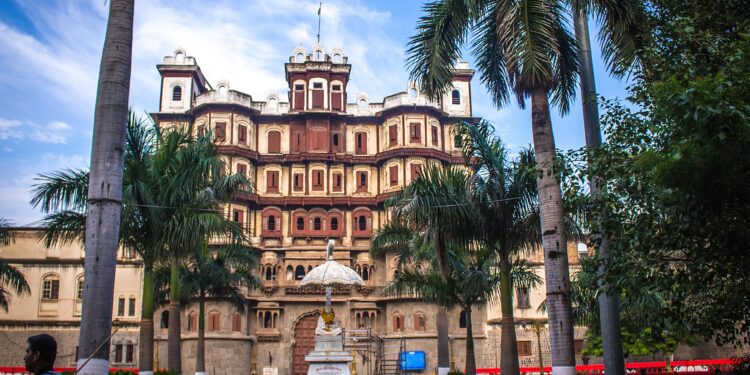Indore Retains Top Spot as India’s Cleanest City; Surat Climbs to Second Place
Indore has once again been honored as the cleanest city in India for the third year running, according to the latest Swachh Survekshan survey. This prestigious annual assessment evaluates urban sanitation and cleanliness across Indian cities, reaffirming Indore’s unwavering dedication to maintaining a hygienic and sustainable urban environment. Close on its heels is Surat, which has demonstrated remarkable progress in enhancing its waste management systems and sanitation infrastructure, earning it the second position this year. These accomplishments not only reflect the collaborative efforts of municipal authorities and residents but also establish a high standard for other cities aspiring to elevate their cleanliness levels. As India advances towards a greener future, Indore and Surat stand out as exemplary models inspiring nationwide urban hygiene improvements.
Indore’s Sustained Leadership Backed by Cutting-Edge Sanitation Initiatives
Securing its place at the forefront of India’s cleanliness rankings yet again, Indore exemplifies how innovative sanitation strategies can transform urban living standards. The city employs an integrated approach that prioritizes active community participation, eco-friendly waste management, and adoption of advanced technologies. A cornerstone of Indore’s success is its comprehensive waste segregation program initiated at households, which significantly boosts recycling rates while curbing landfill dependency.
The city has also embraced smart sanitation tools such as IoT-enabled garbage bins, which provide real-time data on fill levels enabling efficient scheduling of waste collection services—minimizing overflow issues. Regular educational campaigns further empower citizens with knowledge about proper disposal methods and environmental stewardship. These combined efforts have not only helped Indore maintain its top ranking but have also inspired peer cities like Surat to enhance their own cleanliness frameworks. Together, these municipalities are setting new benchmarks for sustainable urban hygiene across India.
Surat’s Advancement to Second Place Demonstrates Robust Waste Management Practices
Surat’s impressive climb into second place reflects its steadfast commitment toward refining waste handling processes through innovative solutions. The local government has implemented an all-encompassing system focusing on waste segregation at source coupled with efficient door-to-door collection services. This dual strategy reduces landfill burden while encouraging residents’ active involvement in recycling initiatives.
The key drivers behind Surat’s success include:
- Expanded Recycling Infrastructure: Establishment of numerous dedicated centers ensuring effective processing of recyclable materials.
- Civic Education Programs: Community workshops aimed at raising awareness about responsible waste disposal practices.
- IOT-Powered Smart Bins: Deployment of sensor-equipped bins that alert collectors when nearing capacity optimizing route planning.
This holistic approach positions Surat as a leading example for other Indian cities seeking scalable solutions toward improved sanitation standards.
Strategies for Long-Term Urban Cleanliness Sustainability Across Indian Cities
The successes witnessed in Indore and Surat offer valuable lessons that can be adapted by other metropolitan areas aiming to boost their sanitary conditions sustainably. Central to this endeavor is fostering strong community engagement where citizens become proactive participants through organized cleanup drives, volunteer groups, and ongoing awareness campaigns promoting civic responsibility.
A critical component involves integrating comprehensive education on proper waste segregation within school curricula—instilling environmentally conscious habits from early childhood onward.
The role of technology cannot be overstated; smart solutions such as sensor-based trash receptacles enable timely collections preventing litter accumulation while mobile apps facilitate rapid reporting of sanitation concerns directly by residents—enhancing responsiveness from municipal bodies.
Sustainability-focused policies including zero-waste initiatives alongside incentivizing recycling programs will further contribute toward reducing environmental footprints within urban settings. By combining governmental leadership with citizen cooperation supported by technological innovation, Indian cities can aspire not only to preserve current achievements but also pioneer new milestones in public health and ecological well-being.
Conclusion: Indore Sets the Standard While Surat Charts an Upward Trajectory Toward Cleaner Cities
The repeated recognition awarded to Indore underscores its relentless pursuit of excellence in managing urban hygiene through forward-thinking policies backed by community collaboration—a model worthy of emulation nationwide. Meanwhile, Surat’s rise highlights growing momentum among Indian cities embracing modernized approaches toward sustainable cleanliness practices.
Together these achievements serve both as benchmarks measuring progress within Swachh Survekshan rankings and sources of inspiration motivating communities across India towards collective action against pollution challenges.
If sustained effectively through continued innovation coupled with widespread public participation, India’s vision for cleaner metropolitan environments remains well within reach—promising healthier living spaces now and generations ahead.















